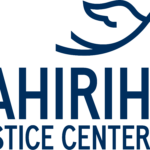Oneness
We are one human family. We advance unity by celebrating and honoring our diverse beliefs and identities. We believe that the welfare of each of us is inextricably bound to the welfare of all. We believe there is strength in unity – so we build bridges and strive to partner with everyone to make the change we seek. We do not make blanket assumptions about any person or group. And because the change we seek transcends partisan politics, we are strictly nonpartisan.
Equity and Justice
We reject White supremacy, anti-Blackness, racism, misogyny, xenophobia, and other forms of oppression, and acknowledge the harm that they cause. We believe that our laws and systems too often benefit those with power and privilege and must be transformed to advance gender equality, racial justice, and social equity. We know that justice looks different to different people, and we serve with humility, recognizing individuals as experts in their own journeys.
Survivor-Centered and Trauma-Informed
We focus our work on women and girls and take an inclusive approach to gender expression and identity. We honor the dignity of the whole person, making space for everyone to contribute with the full range of their lived experiences. We center immigrant survivors as advocates in their own lives, families, and communities and honor their knowledge and lived experiences. We work to recognize and understand trauma and the many ways it shows up in our work. We believe that immigrant survivors are more empowered to make decisions about their safety, their healing, their legal cases, and their future if all their needs are being met. We advocate both for individual immigrant survivors and to change the systems that are complicit in the conditions of their oppression.
Inclusion
We strive to investigate the truth by centering marginalized voices, unlearning our own biases, and seeking perspectives outside our own. We believe that decisions are made better by consultation and harnessing collective wisdom. We believe that trust, transparency, and accountability are essential to a truly inclusive community.
Transformation and Growth
We believe that a transformed world is one where all are held in community and where communities have the resources they need to not just survive but thrive. We believe that growth requires strategic action, wholehearted reflection, continuous learning, and accountability.
Tahirih’s Commitment to Anti-Racism
Tahirih was founded on the belief that the welfare of each of us is inextricably bound to the welfare of all. Our recognition of the oneness of our humanity inspires us to fight for the rights of immigrant survivors of gender-based violence. The obstacles in the way of realizing these rights are intersecting forms of oppression, including misogyny, racism, anti-Blackness, and White supremacy.
We reject these and acknowledge the harm that they cause. We believe that our laws and systems too often benefit those with power and privilege and must be transformed to advance gender equality, racial justice, and social equity for all.
We celebrate and honor our diverse beliefs and identities, and we believe we must end anti-Black racism and White supremacy in all its forms—in our justice system, in our communities, within our organization, and within ourselves.
Today, most of our leadership, staff, and Board of Directors identify as Black, Indigenous, or people of color (BIPOC), the majority as women or gender non-binary, and nearly half identify as survivors of or witnesses to gender-based violence.
We see anti-racism and inclusion as integrated with our work and mission as advocates for immigrant survivors.
Among Tahirih’s clients for direct legal and social services, 92% are Black, Indigenous, and people of color; 95% are women; and 100% are immigrant survivors of gender-based violence.
We developed a trauma-informed, client-centered, and innovative interdisciplinary service delivery model to ensure our legal staff, pro bono attorney volunteers, and social services staff walk with our clients as they rebuild a sense of control and feel empowered to make decisions in their pursuit of justice and safety.
Our public education and training programs enable front-line professionals to approach and support survivors with cultural humility and embrace their shared humanity.
Our public policy advocacy uses client feedback to center the needs of immigrant survivors as we seek meaningful, lasting systemic change to achieve justice and ensure the safety and well-being of immigrant survivors of violence nationwide.
We see inclusion as an indispensable part of making a better, more creative, more effective organization and as part of our journey of continuous learning and improvement. We are by no means done, but we can share some of the progress we have made so far.
Our DEI Journey
We started working intensively to increase diversity, equity, and unity within Tahirih in 2014, and we have been engaged ever since in collective review of how we can do better. Tahirih’s Board of Directors and entire staff have assessed our internal structures, practices, policies and communications, and our work continues.
We refreshed our core values to explicitly reject White supremacy, anti-Blackness, and racism, to unlearn our own biases, and to center marginalized voices.
We adopted an organization-wide Equity Framework for action that goes far beyond the usual commitment to non-discrimination and includes more equitable compensation, recruiting, management tools, and professional advancement.
With training, community agreements, revised decision-making for greater inclusion, and new forms of accountability we are developing our cultural competencies and building a work environment that is inclusive and based on mutual respect and understanding.
Continuous Learning
Fighting for access to justice and safety for some of the most marginalized people in the direst circumstances is part of a wider movement to build a world that is freed from oppression and that embraces unity in diversity. Our work in advancing diversity, equity, and inclusion inside Tahirih is part of the same global movement.
There is a long way to go for our society to be freed from oppression and committed to equity, and for our part we will keep on with our vital mission and keep learning and growing.
